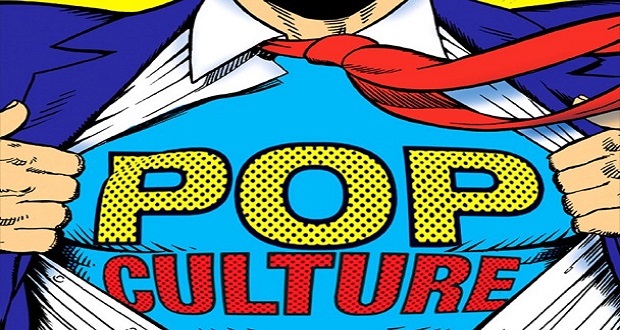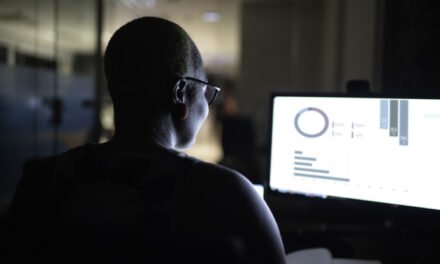
When I sat down to write about antiracism, it gave me pause: How can someone who does not have a full understanding of the lived experience of racialized people do justice to a problem that has been shaping our culture for centuries? As a white immigrant woman who doesn’t share history with disenfranchised groups in America, is it even my place to speak about racial injustice?
Hesitation to get involved is understandable: the issue is uncomfortable, our knowledge might be limited, and the risks may appear to outweigh the rewards. Many of us fear making mistakes in our allyship or and advocacy — what if my actions are not welcome? What if what I say or do will characterize me in a negative way? Sometimes, efforts toward allyship to marginalized groups are perfunctory, resulting in no real change at best (and at worst, taking attention away from the true cause!)
While it is much easier to remain on the sidelines, until we are all willing to take on the fight for justice for groups we do not belong to as our own work, we will never achieve necessary progress. There is no gray area — choosing not to do what is right is tacit support for those doing what is wrong.
In her article for Marie Claire, “On Making Black Lives Matter,” Roxane Gay writes:
“Black people do not need allies. We need people to stand up and take on the problems borne of oppression as their own, without remove or distance.
We need people to do this even if they cannot fully understand what it’s like to be oppressed for their race or ethnicity, gender, sexuality, ability, class, religion, or other marker of identity.”
Below are some steps to become meaningfully involved in making change toward racial justice and being a true advocate to amplify the voices and experiences of Black, Indigenous, and other people of color.
1.) Examine your own privileges.
It is true that privilege is often invisible to those who have it. Privilege is manifested across many identities — gender, race, language, and others — yet it is not absolute, and as intersectionality reminds us, one can enjoy privileges based on certain aspects of their identity while also experiencing an acute lack thereof in others. If you belong to a member of a dominant community, you might be oblivious to your privilege (or might dismiss the concept altogether) — especially if your life has been characterized by other challenges, such as socioeconomic hardship.
As an immigrant, I am very familiar with the struggles that a non-native speaker has while assimilating into the culture. However, I am also a part of the dominant racial group, so, although building a life in the United States has not been easy, the color of my skin was not a factor in making it harder. My encounters with police have never been filled with fear, and when I walk into the store I don’t feel the eyes of security guards on me at all times. I have an intrinsic expectation of relative safety and worth, and I often take it for granted. I have not “earned” these privileges, and it is important to reflect how this experience might differ for Black and Brown people.
Take the time to reflect on whether there are certain aspects of your identity that society values more than others’. If you are white, acknowledge that there are certain struggles that you will never encounter that are very specific to people of color and recognize that it is critical to demonstrate not only compassion and solidarity, but action.
2.) Learn to recognize racism in many forms.
Many people understand racism in the ways it often manifested 50 years ago — overt and intentional discrimination. However, in the past few decades racism has, in many spaces, persisted in more subtle forms. When we are only capable of perceiving blatant and obvious discrimination, it is easy to assume racism is not a major problem today — even while it persists from interpersonal to systemic levels.
Despite erroneous perceptions that racism is dead, the Gallup Center on Black Voices finds that about one in four Black (24%) and Hispanic employees (24%) in the U.S. report having been discriminated against at work in the past year. Moreover, the research finds that Black Americans are significantly more likely to report experiencing microaggressions in the workplace compared to other groups. Furthermore, people of color remain underrepresented everywhere from board rooms to congress, illustrating that institutional and systemic levels of racism are alive and well.
We also tend to view racism in binary terms — someone is either racist, or they are not; and, since most of us would not characterize ourselves as racist, we feel we are therefore “excused” from the discomfort of participating in conversations about race and racism. As author and historian Ibram X. Kendi acutely points out, there is no such thing as “non-racist.” One is either racist or is actively antiracist. According to him, “The heartbeat of racism is denial, is consistently saying, ‘I am not racist,’ while the heartbeat of antiracism is confession, self-reflection, and seeking to grow change.”
3.) Take the time to learn … on your own.
Having attention drawn to one’s privilege or mistakes is uncomfortable — but it is also an opportunity to learn, helping you become a better person and a stronger ally. Resist asking a person of color to educate you — this is not an invitation to their personal life and experiences. Your education is your own responsibility, and there are a myriad of available resources both online and at your local library. When seeking out information on issues of race and privilege, a simple Google search of these terms will produce a plethora of available resources.
White people can also benefit from reading more books and novels written by people of color — while they might not directly address racism, they will provide a valuable perspective and greater insights into other people’s lived experiences. Following campaigns and movements on social media is another great way to get educated and involved.
4.) Understand what makes racial dialogue difficult.
For people of color, engaging in conversation about race can expose them to microaggressions that can invalidate their struggles and even their racial identities. The issue is very personal and emotionally charged, and these discussions can not only reveal vast differences of opinion but also reinforce negative racial views people hold. It can also be extremely painful to open up about one’s struggles.
When involved in racial dialogues, white people can easily become defensive and try to deflect the attention away from race or try to “tone police” — focus on the emotional delivery rather than the underlying message. These conversations can also spur rhetorical incoherence, a term coined by researcher Eduardo Bonilla-Silva in reference to difficulty in articulation, barely audible speech, voice constriction, and mispronunciation of common words associated with race.
For all participants, these conversations can feel like a challenge to their perspectives, resulting in discomfort or defensiveness. Never equate invitation into conversation with expectation, and appreciate the energy it may take for people to participate, respecting their need to pause or end a conversation.
5.) Focus on impact rather than intent.
Even if you mean well, take the time to reflect on the impact that your words and actions might have on both the individual and the community they represent. Begin by acknowledging your own biases and recognizing that we are all products of ecological and sociological conditioning. Being vulnerable and open both allows us to step away from the constant vigilance one has to exercise in guarding their own perceived “unbiasedness” and helps create an open conversation platform for others. Don’t view allyship as a one-off event — embrace the lifelong process of building trust and psychological safety. Leading with empathy — not sympathy — is essential. Embrace someone else’s struggle as your own and provide support with care and humility.
Conversations about racism and racial justice can be uncomfortable, but they are also necessary to dispel stereotypes and misinformation, increase racial literacy, and build a more inclusive workplace. The ultimate white privilege is to acknowledge one’s privilege and remain ambivalent — we have both responsibility and the power to stand up to oppression and racism.
To learn more strategies and tactics for creating racial justice in the workplace, join The Winters Group at The 2023 Virtual Racial Justice at Work Summit on February 15 and 16 (recordings will be available after!).


















